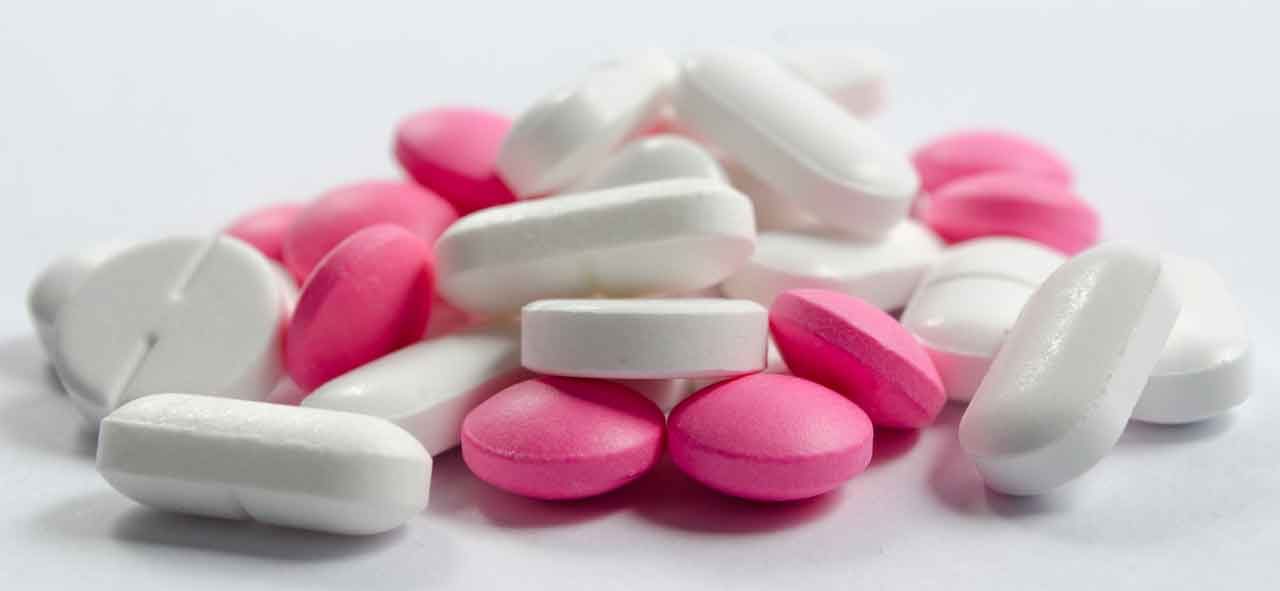How Much Acetaminophen Is Too Much?

Deaths from acetaminophen are second only to deaths from street drugs — both at slightly more than 10 percent of total drug fatalities. Here's what you should know about how much acetaminophen is too much.
The greatest everyday danger to your health may be right in your medicine cabinet.
Fifty million Americans take acetaminophen every week, according to Tylenol, the most recognized brand for the painkiller.
That’s a lot of people — and it’s easier to overdose on acetaminophen than most people realize. Nearly 20,000 children and adults received treatment at a healthcare facility for acetaminophen overdose in 2015, says the National Poison Data System, which collects reports from United States Poison Control Centers and hotlines. Thousands more received treatment for acetaminophen in combination with other drugs, such as antihistamines or codeine.
YOU MIGHT ALSO LIKE: What Pill Dispenser Is Best for You?
Can you overdose on acetaminophen?
While accidental exposure and overdose have declined since 2009, far too many still aren’t aware of the serious dangers. “Overdoses from prescription products containing acetaminophen account for nearly half of all cases of acetaminophen-related liver failure in the U.S., many of which result in liver transplant or death,” according to the Food and Drug Administration (FDA).
Deaths from acetaminophen are second only to deaths from street drugs — both at slightly more than 10 percent of total drug fatalities, according to National Poison Data System figures.
How much acetaminophen is too much?
A boxed warning, the FDA’s strongest advisory, is now on all prescription medications containing acetaminophen. As of 2014, prescription products can contain no more than 325 milligrams (mg) per capsule. Liquid formulations for children are also newly available in just a single strength to reduce confusion about dosing.
An FDA advisory committee has recommended going further, decreasing the maximum daily dose of acetaminophen for adults to 3,250 mg and making 500 mg extra-strength tablets available only by prescription. It takes only exceeding eight extra-strength tablets in 24 hours to overdose.
Yet, you can still get extra-strength versions at the drugstore. In 2011, Tylenol did change its dose recommendations: it now recommends taking no more than six extra-strength capsules of 500 mg each per day, for a total of 3,000 mg.
The right acetaminophen dosage
- For adults, the maximum daily dose of acetaminophen is 3,000 mg — and that’s based on a person weighing 150 pounds. Those who weigh less should probably stay under 3,000 mg.
- For children under age 12, limits vary based on weight and other factors. Always consult your doctor when giving acetaminophen to a child, particularly to infants under two years of age.
Acetaminophen side effects
- Risks increase with continued use over a period of time, and with increased dosage. So take acetaminophen — or any painkiller — at the lowest dose you can manage, and for the shortest time possible. Extra-strength versions should be used extremely carefully.
- Acetaminophen side effects may include nausea, vomiting, loss of appetite, or severe stomach pain. You might also have trouble passing urine, light-headness, sweating, fainting, or weakness, among other symptoms.
- Just seven days of the maximum daily dose of acetaminophen increases a marker of liver injury — and it takes as long as two weeks for levels to return to normal after you stop taking it. Do not take acetaminophen at the maximum recommended dose for more than a week at a time unless under a doctor’s orders (and even then you might want to question it).
Other don'ts when taking acetaminophen
- Don’t drink alcohol while taking acetaminophen. Your liver needs time to metabolize both acetaminophen and alcohol, and overlapping the two could overwhelm it. Conversely, wait a week after taking acetaminophen before having a drink. To be completely safe, you might want to avoid acetaminophen entirely if you drink alcohol. Signs of liver failure include fatigue, nausea, loss of appetite, discomfort on your right side, and diarrhea.
- Don’t combine products containing acetaminophen. Always check labels on cold medicines, such as decongestants and antihistamines — including products like Theraflu — for acetaminophen content. Also check sleep aids, any prescription medications you take, and other pain relievers. Acetaminophen will be listed in the “active ingredients” section at the very top of the label. Common drugstore medications that contain acetaminophen include Nyquil and Dayquil, Excedrin, Alka-Seltzer Plus, and Robitussin. Prescription medications also contain acetaminophen, such as Tylenol with codeine, oxycodone (Percocet), and hydrocodone (Vicodin).
Is it better to take another painkiller?
Unfortunately, ibuprofen (Advil, Motrin) and naproxen (Aleve) may not be much safer. Research shows that nonsteroidal anti-inflammatory drugs, or NSAIDs, can increase cardiovascular risk, the FDA has also warned — and that’s in addition to the risks to your stomach (such as ulcers) they’ve always had. Aspirin, another NSAID, can also cause stomach bleeding, though it’s a better choice for people with cardiovascular conditions, since it also acts as a blood thinner.
If you’re younger than 65 and taking pain relievers for a short period of time — a few days at most — for common conditions like menstrual cramps or injuries, you have no reason to worry. The elderly or people with a heart condition should be especially careful. People older than 65 with a history of cardiovascular trouble may want to avoid NSAIDs entirely. Tylenol offers a helpful chart that helps you choose which painkiller to take based on your medical history.
YOU MIGHT ALSO LIKE: Watch Out for Overdosing on Painkillers
Updated:
March 31, 2020
Reviewed By:
Janet O’Dell, RN